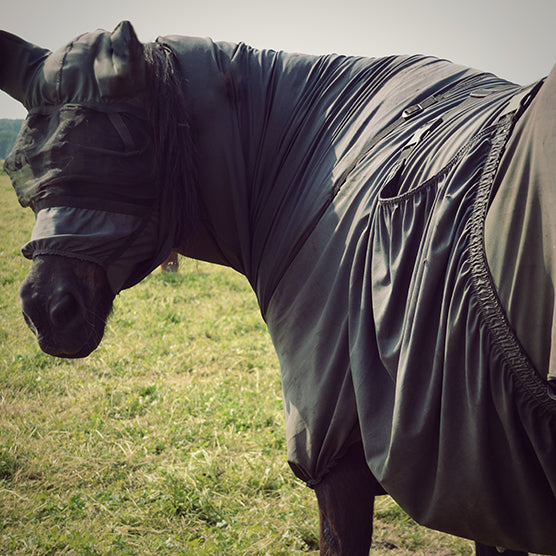As the grazing season begins, the number of horses with itching problems increases. This itching is often mistakenly associated with sweet itch. However, it is important to know that there may be other possible causes. An accurate diagnosis is crucial to finding the right treatment for the horse.
Summer eczema, also known as "summer dermatitis", is an allergic reaction to the saliva of the female black fly. Horses typically show severe itching, especially in the area of the mane, tail and the less hairy parts of the body such as the belly seam and the tube/udder. The affected areas can become inflamed. If these are not cared for, an inflammatory cascade can occur and the immune system is weakened. However, the itching can also have other causes, such as an allergy to pollen. The symptoms are similar to those of summer eczema, which makes an accurate diagnosis difficult. However, an exact location of the chafing areas helps. Horses with summer eczema usually chafe on their tail, mane crest, belly seam and tube/udder. With an allergy to pollen, usually only the mane and tail are affected, but also the head area.
A blood allergy test or a bioresonance scan can provide us with clarity here. Both methods show which allergens are involved.
The treatment of horses with summer eczema or an allergy to pollen is similar. Both conditions cause chafing that needs to be cared for and looked after. Covering the horse with an eczema blanket also helps with both types of allergies. At this point I would like to point out that allergies cannot be cured, only alleviated. For horses suffering from summer eczema, there are 4 factors that need to be considered: posture, care, feeding and insect repellency (repellent treatment). For horses with an allergy to pollen, breathing should also be monitored.

